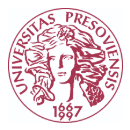Detailed introduction of University of Prešov:
Introduction
The University of Prešov is the only public university in the autonomous region of Prešov, Slovakia, focusing on education and research in the fields of social sciences, natural sciences, theology, sports, arts, management and health care.
Overview
Student size: As of October 31, 2012, there are 10,059 students.
Faculty: With 1,050 administrative staff, the faculty is professional and large, able to provide students with good education and guidance.
History and establishment time
The university was split from the Pavol Jozef Safarik University in Košice according to Act No. 361/1996 of December 1996, and was officially established on January 1, 1997.
School Strength
Teaching: It has 8 faculties, providing various certified courses at the bachelor's, master's and doctoral levels, covering a wide range of subjects, and has both full-time and part-time learning modes. Its courses focus on combining theory with practice. For example, the courses of the School of Management will arrange students to intern in enterprises, and the students of the School of Education have a lot of teaching practice opportunities, etc., so that the students trained can adapt well to social needs.
In terms of scientific research: scientific research activities are active and the results are remarkable. It has three centers of excellence, namely the Center of Excellence in Language and Culture Translation and Interpretation, the Center of Excellence in Social History and Cultural History Research, and the Center of Excellence in Animal and Human Ecology. The school teachers will also publish research articles at home and abroad, and participate in scientific activities in various countries to showcase their research results.
International Exchange: It is a member of the European University Association, the Danube Rectors' Conference and other organizations, and is also one of the co-founders of the Central and Eastern European University Alliance and the European Mediterranean University. Through bilateral agreements, the university cooperates with 75 higher education institutions in more than 20 countries, and under the Erasmus program, students and teachers have the opportunity to exchange and study in more than 300 universities in Europe.
Institutional nature
Public university.
Educational philosophy
Committed to cultivating well-rounded professional talents, focusing on the development of students in academics, arts, sports and other aspects, improving students' knowledge level and practical ability through high-quality education and scientific research activities, cultivating talents with social responsibility, innovative spirit and practical ability for the society, and promoting the development of the region and even the country in various aspects such as society, economy and culture.
Key laboratories and disciplines
Key disciplines: Theology, ecology, humanities and natural sciences are strong. For example, the Greek Catholic Theology and Eastern Orthodox Theology majors have a high influence in Slovakia and even in Eastern Europe, and have trained a large number of professionals for religious studies and related fields; the research results of the Ecology major in the field of natural sciences have also received certain attention internationally.
Laboratory situation: Although there is no explicit mention of particularly famous professional laboratories, from the perspective of subject settings, each subject should be equipped with corresponding teaching and scientific research laboratories. For example, the School of Natural Sciences may have biology laboratories, chemistry laboratories, etc. to meet the needs of students' practical teaching and scientific research projects.
Department settings
The school has 8 colleges, as follows:
School of Arts: Founded in 1959, it cultivates students' professional skills and creativity in the fields of music, fine arts, performance and other arts.
Greek Catholic Theological Seminary: Founded in 1990, it focuses on the teaching and research of Greek Catholic theology.
School of Humanities and Natural Sciences: Founded in 1997, it covers multiple disciplines in humanities, social sciences and natural sciences.
School of Management: Founded in 2004, it provides professional courses such as business management, marketing, and financial management.
Faculty of Education: Founded in 1949, it trains teachers for the field of education.
Orthodox Theological Seminary: Founded in 1950, it is dedicated to the education and research of Orthodox theology.
Faculty of Sports: Founded in 2004, it trains professionals in sports education, sports training, sports management, etc.
Faculty of Health Care: Founded in 2002, it provides professionals for the health care industry.
Ranking
Ranked 80th in the 2025 Eastern European University Ranking.
Fees
Study is generally free for Slovak citizens or EU residents. Tuition fees for international students vary depending on the major and degree level. The specific fees can be found on the school's official website.
Campus
Campus facilities: The main campus is located in Prešov. The campus is well-equipped with modern teaching buildings, libraries, laboratories and other teaching and research facilities, providing students with a good learning environment. The library has a rich collection of books, covering books and academic journals in various disciplines to meet students' learning and research needs.
Campus life: The school focuses on the all-round development of students and provides students with a rich and colorful campus life. The school has art groups such as choirs, dance groups, and student theaters. Students can participate according to their interests and hobbies to show their talents. In addition, the school will also hold various sports events and cultural activities to enrich students' extracurricular life and enhance communication and cooperation among students.
-
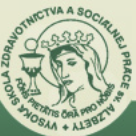
St. Elizabeth College of Health and Social Work
-
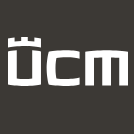
University of St. Cyril and Methodius in Trnava
-

Matej Bel University in Banská Bystrica
-

Technical University of Kosice
-

Slovak University of Agriculture in Nitra
-
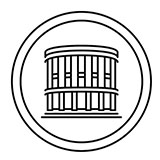
Comenius University in Bratislava
-
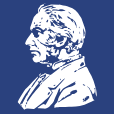
Pavol Josef Safarik University
-
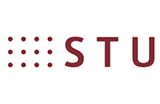
Slovak University of Technology in Bratislava
-
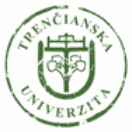
Alexander Dubcek University, Trencin
-

University of Žilina
-

Mesoamerican University
-

Istmo University
-

Mariano Galvez University of Guatemala
-

Regional University of Guatemala
-

Galileo University
-

Francisco Marroquín University
-

Rafael Landívar University
-

University of the Valley of Guatemala
-

University of San Carlos of Guatemala
-

Technological Institute of Tlaxcala Plateau
-

Golfo University
-

Technological University of South Sonora
-

Technological University of Huejotzingo
-

Tizimín Institute of Technology
-

Chilpancingo Institute of Technology

